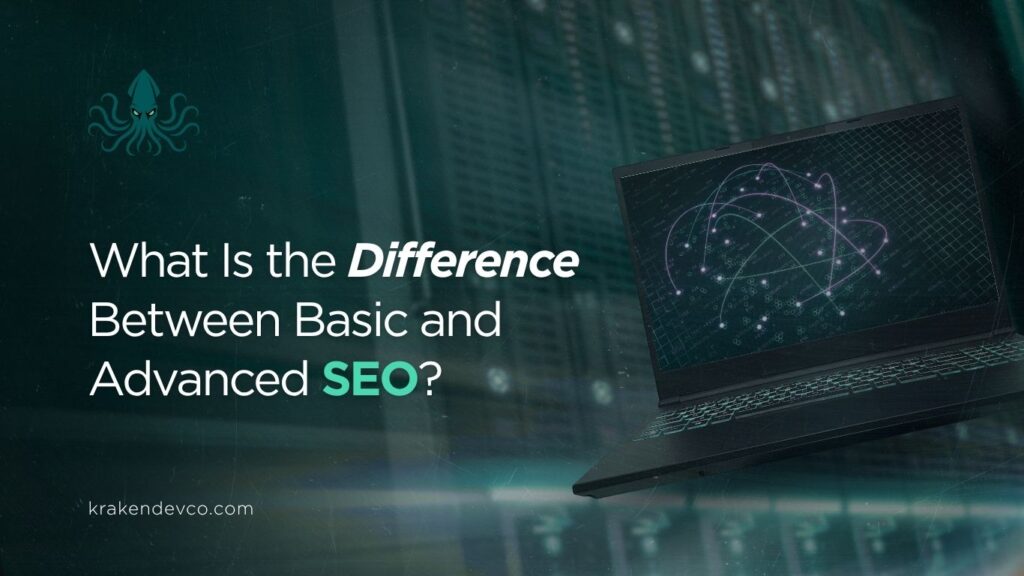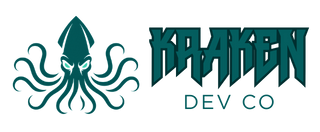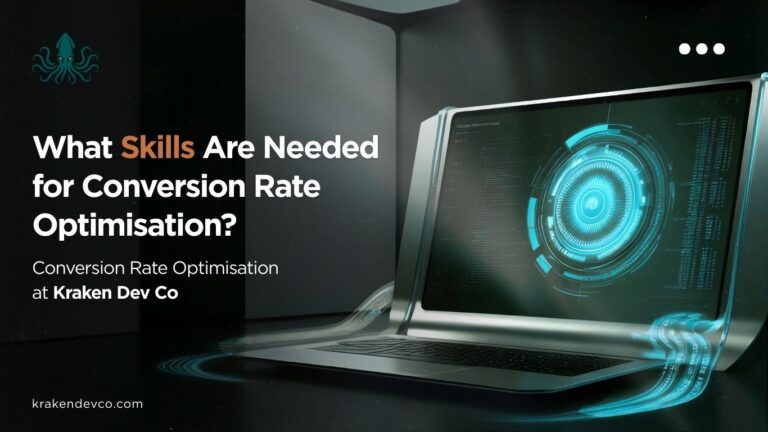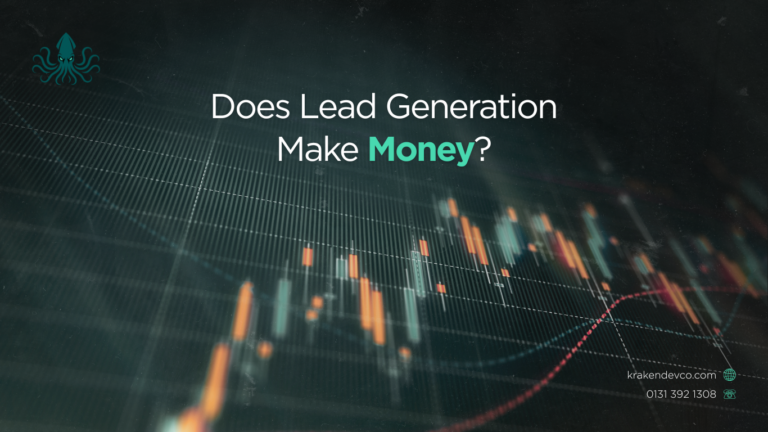
Basic SEO vs Advanced SEO: Understand the Gap or Stay Invisible
Search Engine Optimisation (SEO) isn’t about checking boxes—it’s about commanding the SERPs. If your SEO strategy begins and ends with title tags and meta descriptions, you’re stuck at basic. Basic SEO is crawlable. Advanced SEO dominates. Kraken Dev Co builds the latter.
This page breaks down the core differences between basic and advanced SEO using modern ranking factors, technical aspects, and data-backed techniques. It’s built for business owners, SEO professionals, and digital marketers who know visibility alone isn’t enough.
What Is Basic SEO?
Basic SEO refers to foundational tactics that ensure your website is visible to search engines like Google. These are the entry-level essentials—necessary, but insufficient for competitive growth.
Core Elements of Basic SEO
- Meta Tag Optimisation: Editing meta titles and meta descriptions for clarity and clickability.
- On-Page SEO Techniques: Applying keyword phrases to headings, paragraph text, image alt tags, and anchor links.
- Internal Linking: Connecting related content through simple internal links.
- Keyword Research: Using tools like Google Keyword Planner and Yoast SEO for basic keyword suggestions.
- Page Speed Optimisation: Minimising dead weight—compressing images, reducing render-blocking resources.
- XML Sitemap & Robots.txt Setup: Ensuring search engine crawlers can discover your site.
- Search Console Setup: Verifying site ownership and monitoring indexation.
Basic SEO helps you appear in search engine results pages (SERPs). It’s procedural. It’s checklist SEO.
What Is Advanced SEO?
Advanced SEO is strategic. It goes beyond visibility to deliver outcomes—revenue, conversions, scale. It’s a systematic, data-driven approach that connects search traffic with business goals.
Pillars of Advanced SEO Strategy
1. Technical SEO Execution
- Crawling and rendering audits with Screaming Frog, Page Explorer, and log file analysis
- Schema mark-up with JSON-LD for structured data and rich results
- Implementation of Core Web Vitals optimisations
- Handling complex architectures: faceted navigation, canonical conflicts, JavaScript rendering, international hreflang
2. Entity SEO & Semantic Optimisation
- Creating content clusters and topic clusters aligned with user intent
- Leveraging structured data to feed Google’s Knowledge Graph
- Managing unlinked brand mentions and building link magnets
- Mapping internal linking to reflect semantic relationships
3. Search Intent Modelling
- Building pillar pages with interlinked supporting articles (content clusters)
- Targeting long-tail keywords and voice search triggers
- Writing for featured snippets, rich snippets, and zero-click results
4. SEO Analytics & Automation
- Event tracking, GA4, Search Console Insights, Looker Studio
- Funnel-based SEO reporting (not vanity keyword rankings)
- Python-driven automation for auditing, backlink analysis, and reporting
5. Link Acquisition at Scale
- Editorial link building, skyscraper content, and digital PR
- Reclamation of broken links, orphaned pages, and dead assets
- Advanced backlink profile auditing via tools like Majestic or a backlink checker
Comparison: Basic SEO vs Advanced SEO
| Element | Basic SEO | Advanced SEO |
| Tools | Google Search Console, Google Analytics | GA4, Looker Studio, BigQuery, Screaming Frog, Surfer SEO |
| Content Strategy | Keyword-stuffed landing pages | Intent-driven, semantic topic clusters |
| Keyword Focus | Short-tail, broad | Long-tail, intent-mapped |
| Reporting | Search rankings, traffic volume | Behavioural analytics, funnel conversion, ROI |
| Link Building | Directories, blog comments | Authority-led, contextual, digital PR |
| Search Engine Coverage | Google Search basics | Google Discover, Google Maps, Google Featured Snippets |
| Site Structure | Static, basic hierarchy | Dynamic with programmatic internal linking and siloing |
| Structured Data | Missing or misused | JSON-LD with consistent entity tagging |
Why “Advanced” Depends on Context
Advanced SEO isn’t a static definition—it scales with your business model.
- Startups: Advanced might mean automated crawling, log parsing, and GA4 segmentation by channel.
- Enterprises: Advanced is global hreflang management, faceted navigation governance, and real-time SEO dashboards.
- Agencies: Advanced means scalable SEO workflows tied into dev sprints and sprint retros via JIRA, GitLab, or CI/CD integrations.
When You Must Move Beyond Basic SEO
If you meet any of the following, basic SEO is holding you back:
- You manage hundreds or thousands of pages
- Your product lives and dies by organic search traffic
- You’re in a vertical dominated by legacy competitors
- Your bounce rate is high but your content isn’t bad
- You rely on Google Ads, but margins are tightening
Now is the time to invest in a data-driven, conversion-focused, advanced SEO system.
2025 Standards: What Advanced SEO Looks Like Now
The bar has risen. What used to be “cutting-edge” is now expected.
- Structured content optimised for AI parsing (voice search, SGE, Discover)
- Entity alignment across your website, social media, and Google Business Profile
- Full implementation of Search Engine Optimization Fundamentals Course-level discipline
- Website speed optimisation and Core Web Vitals compliance
- Combatting keyword cannibalisation through content audits and topic clustering
Transition Plan: From Basic to Advanced SEO
Technical Skills
- JS rendering diagnostics
- Schema nesting strategies
- Log-based crawl pattern analysis
Analytics Stack
- GA4 with conversion events
- Looker Studio with revenue mapping
- BigQuery for granular segmentation
Content Ops
- Surfer SEO scoring
- NLP-driven keyword modelling
- Automated internal linking via entity-aware systems
Link Building Systems
- Broken link harvesting
- Unlinked mention tracking
- Targeted skyscraper campaigns
Kraken Dev Co: We Don’t “Do SEO.” We Engineer Organic Growth.
Basic SEO is survival. Advanced SEO is control.
At Kraken Dev Co, we build SEO systems designed for scale, velocity, and accountability. From site migration strategy to structured data governance to pipeline-based reporting, we embed search engine optimisation directly into your business stack.
We’re not guessing. We’re shipping.
Ready to Break the Basic Barrier?
You’ve seen the difference. Now build the difference.
→ Contact Kraken Dev Co to launch your Advanced SEO Strategy



